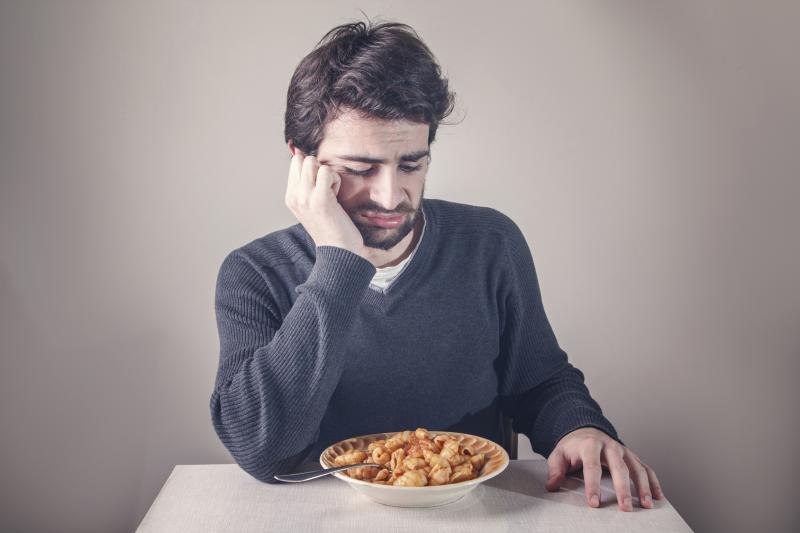
Levels of depression and anxiety facilitate the relationship between disordered eating (DE) and body image dissatisfaction (BID) among psychiatric outpatients in a multicultural Asian setting, with DE potentially leading to a worse quality of life, according to a Singapore study.
“[G]reater efforts should be dedicated to the screening of DE behaviours in psychiatric outpatients presenting with greater psychological distress,” the researchers said.
To examine the moderating effects of depression and anxiety levels on the BID and DE link, participants who submitted a written informed consent were asked to complete a set of questionnaires, which included various scales pertaining to eating behaviours, body image, psychological distress and quality of life. Relevant ethics and institutional review boards approved all study procedures and materials.
Of the 329 participants recruited from the Institute of Mental Health in Singapore, 47.4 percent were diagnosed with schizophrenia, 46.8 percent depression and 5.8 percent substance use disorders. [Singapore Med J 2020;doi:10.11622/smedj.2020058]
In moderation analyses, both levels of depression (F[9,251], 18.50; R2, 0.021; p<0.001) and anxiety (F[9,268], 19.54; R2, 0.014; p<0.001) were found to be significant moderators of the relationship between BID and DE scores.
After controlling for sociodemographic covariates, subsequent multivariate linear logistic regression analyses revealed the significant association of high DE scores with lower physical (F[8,273], 9.59; R2, 0.22; p<0.001; b, –0.27; p<0.001), psychological (F[8,273], 10.51; R2, 0.29; p<0.001; b, –0.27; p<0.001), social (F[8,256], 6.78; R2, 0.18; p<0.001; b, –0.18; p=0.004) and environment (F[8,273], 5.29; R2, 0.13; p<0.001; b, –0.19; p=0.001) quality of life scores.
These findings were consistent with those of previous studies conducted in the community, which reported that pre-existing levels of dissatisfaction with the body, in the presence of psychological distress, have a great effect on DE. [Eat Disord 2011;19:346-354; Behav Modif 2004;28:711-738]
“When depression or anxiety levels rise, BID will have a greater effect on DE,” the researchers said. “Conversely, when depression or anxiety level falls, so will the adverse effects of BID on DE.”
Lack of specific screening leads to under-recognition of DE and eating disorders in individuals with mental illness. [J Pers Assess 2000;74:489-503; Postgrad Med 1991;89:209-212, 215; Psychol Med 2008;38:1465-1474]
According to the researchers, individuals who seek help usually present more pressing issues at admission, and DE becomes a secondary concern. When these concerns are neglected, symptoms may become more chronic, which can negatively affect the efficacy of future treatment. [Eat Disord 2003;11:27-38; Int J Eat Disord 2000;27:428-434; Int J Eat Disord 2006;39:87-100; Int J Eat Disord 2015;48:946-971]
“Thus, our results emphasize the need to screen for eating attitudes in help-seeking individuals who experience high levels of depression or anxiety, as they may have a greater tendency to manifest DE attitudes, behaviours and, possibly, disorders,” the researchers said.